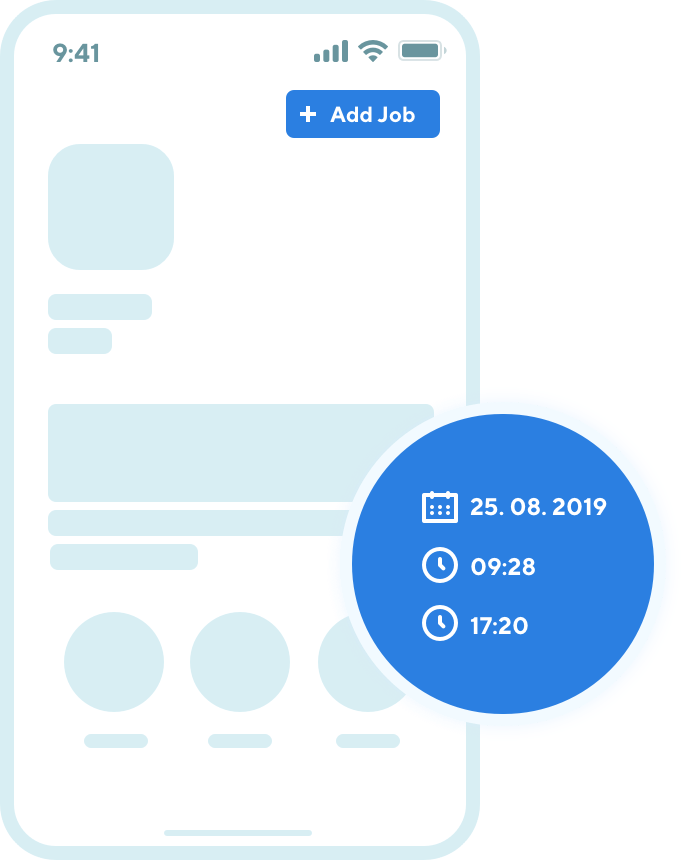
Mobile Testing
The quality of a mobile application affects its sustainability in the market. The question is, how can app providers build high-quality products that stand out among the rest? The answer is with testing.
What is mobile testing?
Types of mobile testing
Mobile testing best practices
Katalon for mobile testing
What is MobileApplication Testing?
Mobile application (app) testing is the process of verifying whether an app designed for handheld devices meets certain mobile testing requirements. “Mobile app" refers to three types of software: native apps, mobile web apps, and hybrid apps.
In all software development processes, mobile app testing is a must before an app is released into the marketplace. This step ensures the final product functions properly throughout its customer experience journey.
Mobile testing not only oversees the quality and functionality of the app but also effectively increases user engagement.

Why is mobile applicationtesting important?
Imagine yourself – as a user – trying out a new app. If the app takes too long to download, chances are you might exit before even using it.
If it functions well on Android but the UI is funky on your iOS devices, you may also drop out. If the app repeatedly crashes while in use, you may discontinue using it.
So thoroughly testing your app would eliminate risks like these and increase the app retention rate.

Types of Mobile Application Testing
Functional mobile app testing
Often applied to test UI elements, screen adaptation, core structures, and functions of the app. It also tests the installation and update processes, localization settings, compatibility, and accessibility of the application under test (AUT).
Operational mobile app testing
Operational testing assesses the AUT's response to events and changes in certain devices such as power cycling, data cable connection, Wi-Fi connection, and airplane mode status; then compare them with the defined requirements.
Interrupt mobile app testing
Interrupt tests imitate all possible interruptions, such as incoming and outgoing calls/SMS/MMS, pop-up notifications/reminders, etc. They ensure the AUT can handle all interruptions by going into a suspended state and restarting afterward.
Mobile app security testing
Ensures the AUT's absolute security over the users’ data to avoid risks such as leakage of sensitive information. Security tests will put the AUT's data and network security under adequate tests to meet the security requirements.
Mobile app performance testing
Determines how the application responds under a particular number of challenges such as low battery power, out-of-coverage network, etc. In general, performance testing will test the speed, stability, and scalability of the application.
Mobile app regression testing
Verifies whether or not the latest updates or patches introduce new regressions, or bugs, into the mobile app system. It is done continuously to ensure that new changes are feature improvements, not defects to the application.
Best Practices for Mobile Application Testing
Why Katalon for Mobile Testing Automation
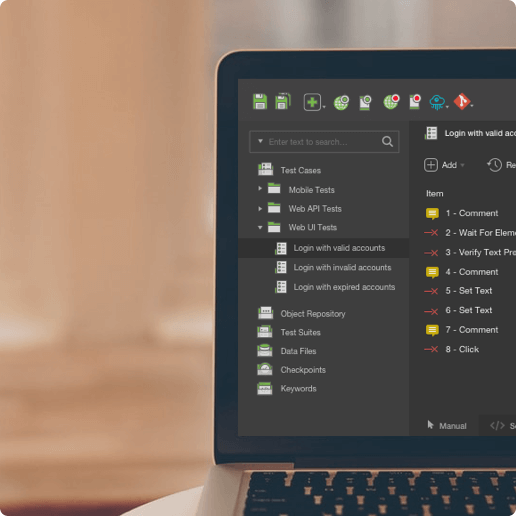
Simple setup
Bundled with required components and prebuilt keywords to start your mobile automation project in no time.

Appium-compliant
Support the latest mobile platforms and devices. Leverage the Appium-based rich and active ecosystem.

Powerful object spying utility
Effectively detect and store UI elements to speed up the scripting process and reduce maintenance effort.
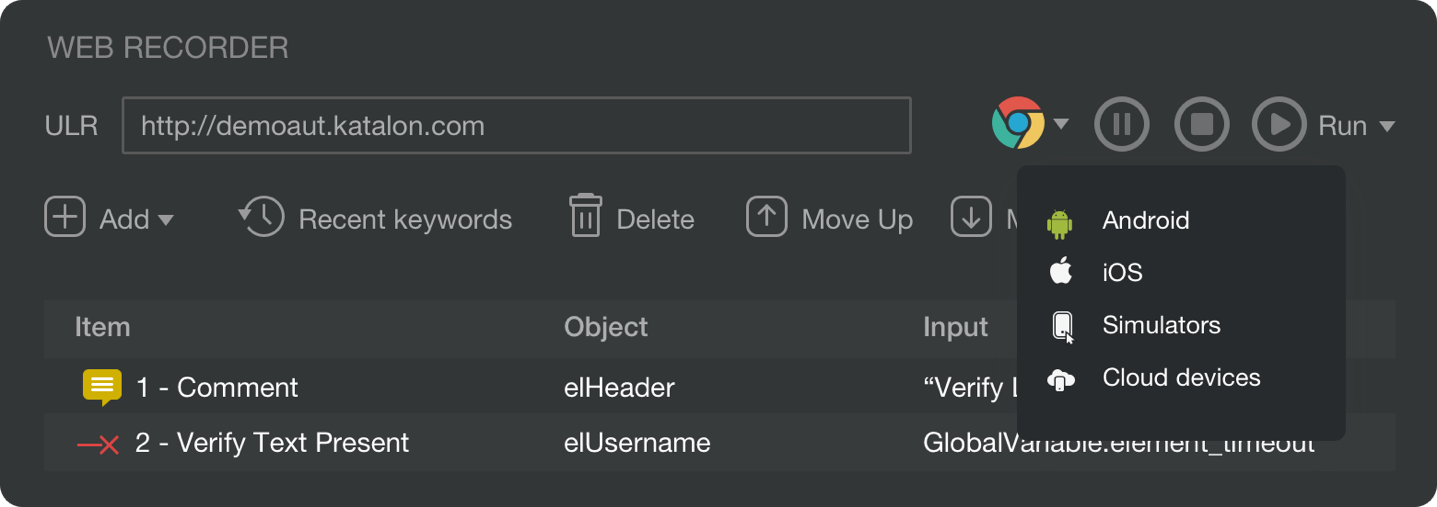
Robust recording utility
Effortlessly generate tests with mobile recorder.
Automatically store all UI elements for reuse purposes.
Automatically store all UI elements for reuse purposes.
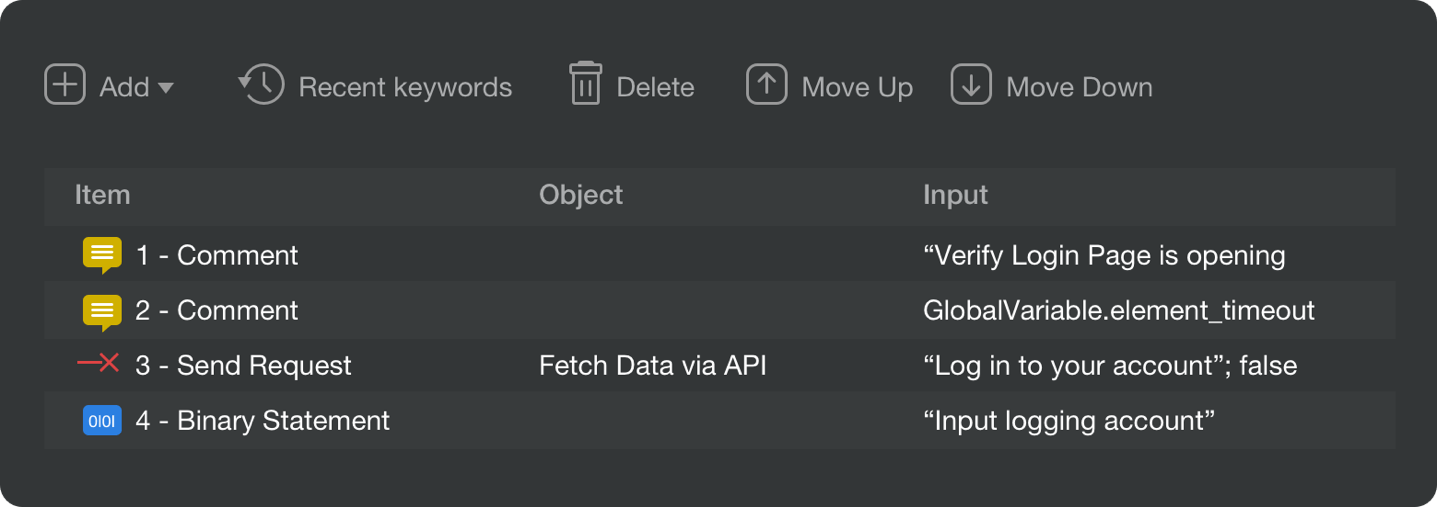
Optimal cross-functional testing
Maximize automation efficiency with reusable test objects and scripts across API, web, and mobile platforms.
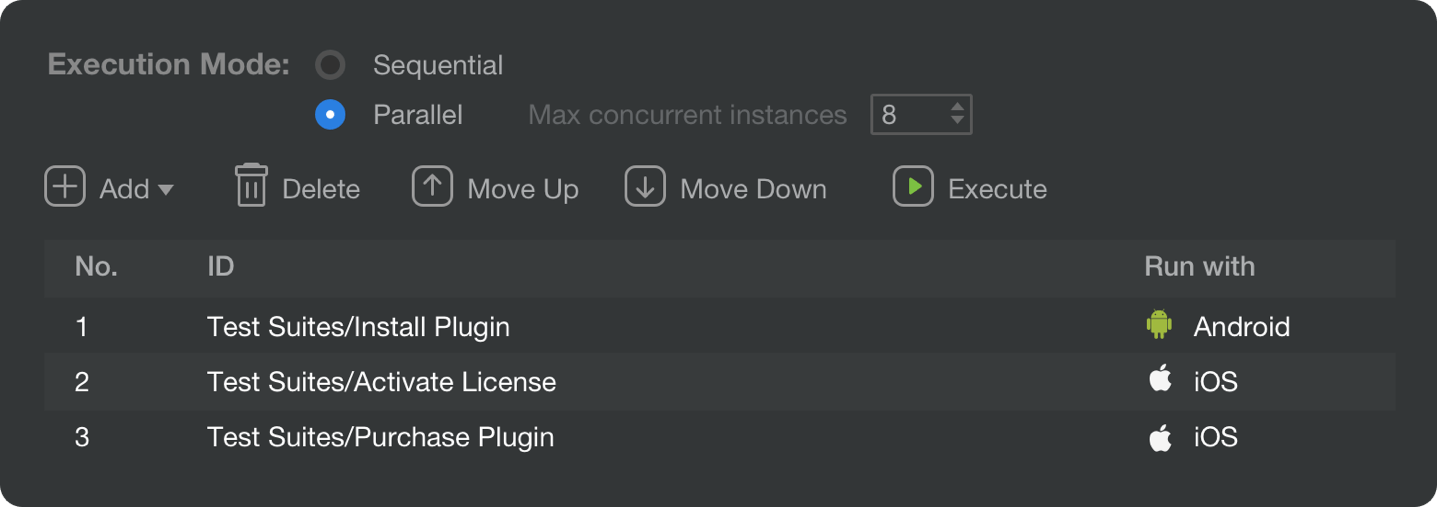
Cross-environment execution
Tests can be executed locally and remotely with real devices, simulators or cloud-based devices.
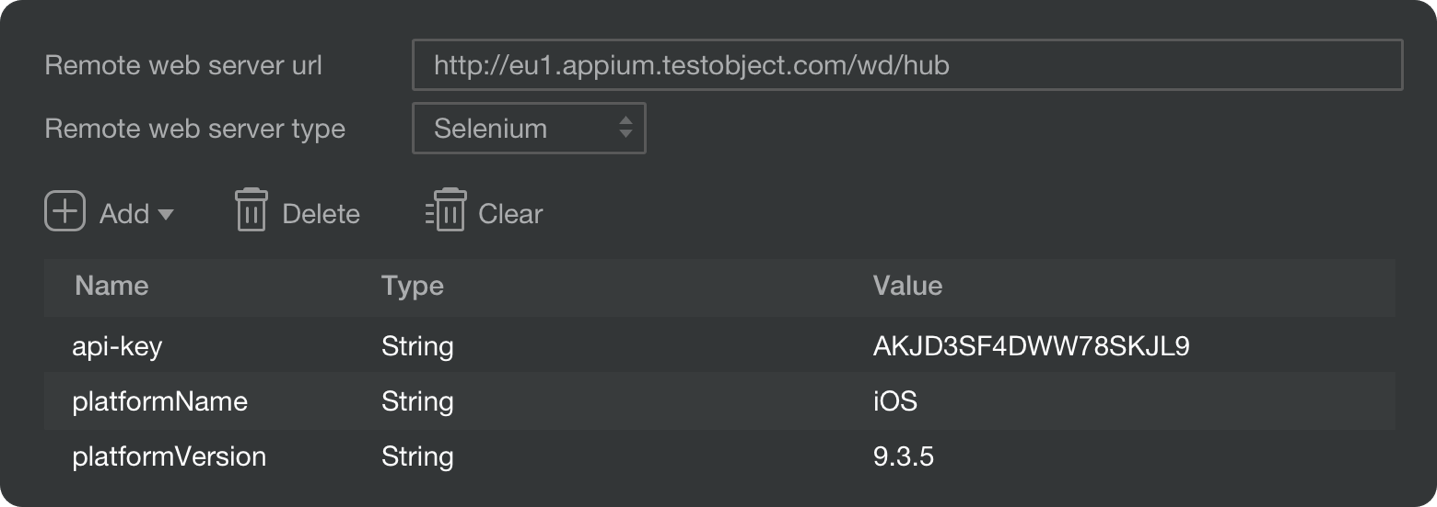
Cloud-based mobile platform integration
Integrate with the mobile platforms you are already using (Sauce Labs, LambdaTest, and more).
Katalon Mobile Application Testing Capabilities
Mobile Testing Capability
Katalon Studio
Supported OS
 Windows, macOS, and Linux
Windows, macOS, and LinuxInstallation & Use
 Easy to set up and use
Easy to set up and useApplication Under Test
 Native apps, mobile web apps, and hybrid apps
Native apps, mobile web apps, and hybrid appsTesting Platform
 Android & iOS
Android & iOSTesting Device
 Real devices and emulators
Real devices and emulatorsProgramming Skill
 Not required
Not requiredRecord & Playback
 Advanced
AdvancedPlatform
Test Authoring
Katalon StudioTest Management
Katalon TestOpsReporting & Analytics
Katalon TestOpsApplied Artificial Intelligence
AI Visual Testing

